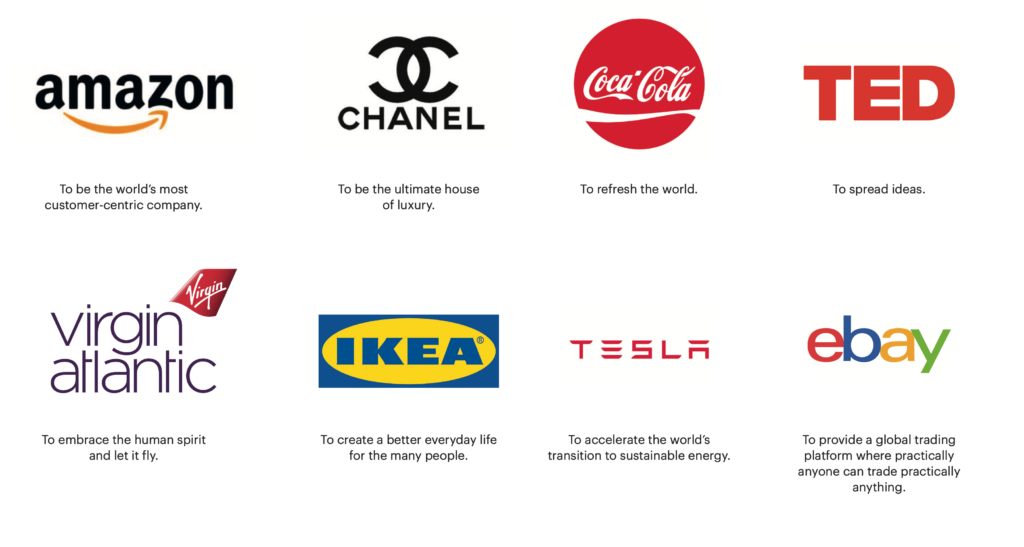Unveiling Brand Purpose and Moving Beyond Taglines
originally featured on frostcreative.co.uk
There is a lot of noise on social media at the moment about purpose. I’m sure you’ve seen numerous posts about purpose beyond profit as businesses are finally recognising the significance of establishing a clear and authentic brand purpose. However, after running many workshops, we’ve witnessed confusion by leaders where they attempt to encapsulate the purpose into a concise tagline. It’s essential to understand that a brand purpose is not a tagline; it’s a profound and enduring expression that transcends marketing strategies. In this article, we un-pick the layers of brand purpose, dispelling misconceptions and guiding you toward a clearer understanding of what it is.
Defining Brand Purpose:
At its core, a brand purpose is the reason a company’s exists beyond making money. It delves into the deeper world of societal contribution, encapsulating the positive impact a brand aspires to have on its stakeholders and the world. While a tagline is succinct and often revolves around engagement and emotive response, a brand purpose is a holistic narrative that drives every facet of a business.
Beyond Catchphrases:
A tagline may encapsulate a momentary sentiment, but a brand purpose transcends the temporary. It is not a catchy phrase concocted to capture attention; instead, it is a timeless declaration of a company’s commitment to making a meaningful difference. A tagline may come and go, but a brand purpose is long lasting, shaping the company’s trajectory and resonating with stakeholders on a deeper level. In fact, it is worth understanding that if a company’s purpose changes, it means the organisation has changed.
Inspiration Over Persuasion:
Unlike a tagline, which often seeks to persuade and entice, a brand purpose aims to inspire. It is a guiding principle that influences decision-making, employee engagement, and customer loyalty. While a tagline may be memorable, a brand purpose lingers in the hearts and minds of individuals, fostering a genuine connection that extends beyond transactional relationships.
Actions Speak Louder:
Real change does not emanate from the words expressed in advertisements and marketing campaigns; it stems from the tangible actions of a brand. A brand purpose serves as a compass, guiding these actions to align with the core values and principles it professes. It is not about what you say; it’s about the consistent and authentic way your brand makes people feel through every interaction.
It’s Not a Tagline:
A brand purpose may organically give rise to a tagline, but it is crucial to recognise that the two serve distinct purposes. While a tagline encapsulates a momentary sentiment or value proposition, a brand purpose is the bedrock upon which a company’s identity is built. Leaders must resist the temptation to reduce the profoundness of their purpose into a mere tagline, as this risks diluting the authenticity and impact of the brand’s higher calling.
In the pursuit of establishing a compelling brand purpose, leaders must avoid the allure of catchy taglines and slogans. A brand purpose is an intricate tapestry that weaves together values, vision, and societal impact. It is the soul of a company, guiding it through the complexities of the business landscape. As leaders embark on the branding journey, they must embrace the depth of a brand purpose and appreciate that its resonance lies not in what is said but in how the brand consistently makes people feel at every touchpoint.
Example Brand Purpose:
Irrespective of your business scale, articulating a well-defined core purpose holds real significance. This articulation serves as a guiding force, steering future actions toward maintaining a consistent and authentic connection with stakeholders and shaping interactions with audiences. The following purpose statements, derived from well-known brands, personify simplicity and clarity—a quality essential for fostering resonance and rallying support. It is not uncommon for business leaders to attempt to incorporate numerous actions and reasons for existence, a practice that proves challenging to sustain. Embracing simplicity becomes pivotal; a straightforward and easily comprehensible core purpose facilitates understanding and garners support, fostering a more unified front.

Amazon’s purpose is elegantly straightforward: “To be the world’s most customer-centric company.” This simplicity is the essence of its effectiveness. The intent is crystal clear to all stakeholders – the brand, through its actions, products, and services, aspires to attain the pinnacle of customer-centricity globally. This commitment translates into a seamless experience for users, whether they are shopping for goods, seeking information online, enjoying entertainment, or engaging in commerce through the Amazon platform.
Consider Tesla as another example. Their purpose is boldly declared as “To accelerate the world’s transition to sustainable energy.” Noteworthy is the absence of any mention of cars. Their purpose transcends mere car sales; it’s a commitment to propelling the world toward sustainability. The fact that the vehicles they manufacture and sell happen to be electric is a manifestation of this broader mission.
Take TED’s purpose, “To spread ideas,” as another compelling version. This purpose doesn’t narrowly focus on organising remarkable talks and events globally; instead, it delves deeper into the potential impact these events can have on the world. Notably, many have no doubt watched Simon Sinek’s TED talk, where he discusses the Golden Circle and the “WHY HOW HOW.” This encapsulates how TED’s purpose extends beyond the events themselves to the transformative power of ideas.
These examples emphasise that a well-crafted purpose transcends the surface level of products or services. It embodies a deeper commitment and aspiration, guiding actions and resonating with stakeholders on a profound level.
Frost Creative Ltd
Southampton
T: +44 (0)1489 892 602
Company Profile

Frost Creative Ltd
Southampton
T: +44 (0)1489 892 602
MCH HUBS
RECENT ARTICLES










